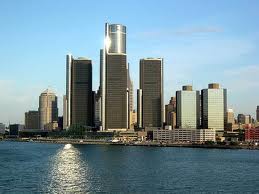
The city of Detroit is relying on an unexpected business to keep them afloat. While the auto-industry used to be the main source of income for the struggling city, the three casinos located within the city limits are now necessary to keep city above financial floodwater during bankruptcy proceedings.
Within the bankruptcy filings it can be seen exactly how dependent the city is on the monthly taxes received from the casinos. As of June 30th, the $11-million in monthly taxes accounts for approximately 30% of the city’s available money. The casino tax alone pays for half of the police department and 100% of the capital required to keep the fire department in motion.
Detroit, home to four of the top ten most dangerous neighborhoods in the entire United States, needs the money from the casinos every month to make sure the residents of their streets will be safe. The filing expresses the urgency of funding within the police and fire department, stating that the casino taxes are required immediately.
The handling of casino tax money became an issue for the city of Detroit when a creditor wanted to keep the city from having any access to the funds. Syncora Holdings, and insurer lost control of the tax funds after a court order gave control and access to the casino money back to Detroit. Now that the city has filed for Chapter 9 bankruptcy, the court will need to give the go ahead for Detroit to receive any funds that come out of its three casinos. Bank of America, Merrill Lynch, and UBS, other creditors working with the city have all agreed that the casino intake can go to the city.
Casino taxes and their benefits to Detroit come from the Greektown Casino, MGM Grand Detroit, and Motor City Casino. As with many cities, casinos bring jobs, tourism, and extra money that can cover the bills for crucial amenities such as fire crews and police.
As of April 2013, the state of Michigan saw proposals for 8 new casinos that could bring in more jobs, and most importantly, more income for a state that is struggling to stay afloat.
